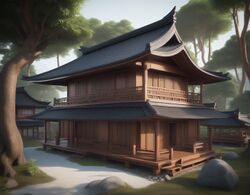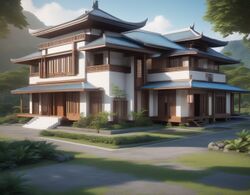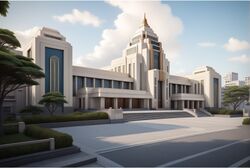Kamuran Architecture: Difference between revisions
Jump to navigation
Jump to search
No edit summary |
|||
| Line 37: | Line 37: | ||
|The New Palace, Penkhu, a late Middle Kamuran style palace complex incorperating Altaian design influences. | |The New Palace, Penkhu, a late Middle Kamuran style palace complex incorperating Altaian design influences. | ||
|Siwa City Library, an example of Konst Dekor architecture that became popular in Kamura after 900 SK. | |Siwa City Library, an example of Konst Dekor architecture that became popular in Kamura after 900 SK. | ||
|A Kinnite Temple in the New Ornamental style with a statue representing | |A Kinnite Temple in the New Ornamental style with a statue representing the goddess, ''Puxe'', located on the left. | ||
|A recently built Kinnite Temple, demonstrating the contemporary Kamuran Futurist style. | |A recently built Kinnite Temple, demonstrating the contemporary Kamuran Futurist style. | ||
|} | |} | ||









